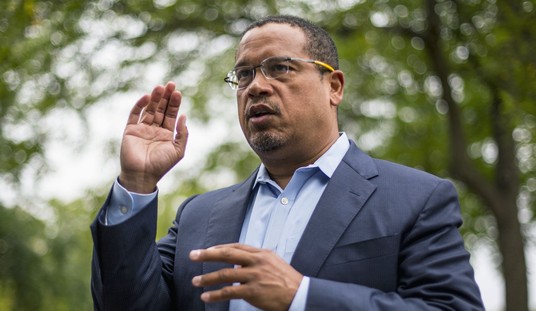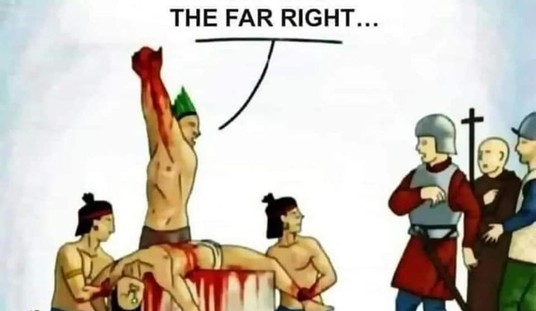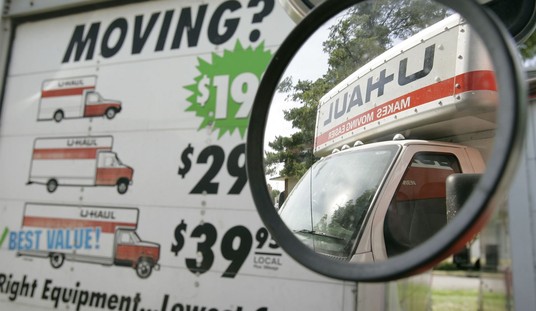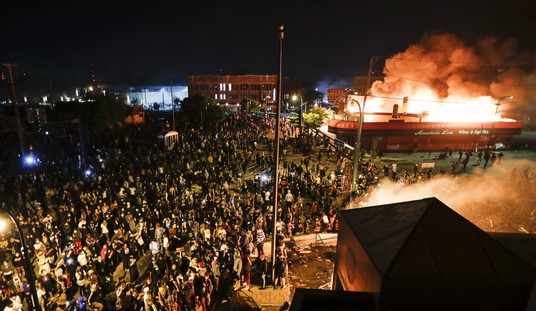Twenty-three years ago, H. Ross Perot threw a historic monkey wrench into the two-party system, using his personal wealth to launch the most serious independent presidential bid in a generation. Thanks to a populist message and dissatisfaction with economic policy, Perot parlayed his well-known financial genius into 19% of the popular vote, failing to win a single Electoral College elector but derailing George H. W. Bush’s bid for a second term. In this cycle, a rising tide of populist disaffection from both parties gives a similarly situated Donald Trump an opening to follow Perot’s path as the ultimate disruptor. However, the Wall Street Journal’s Reid Epstein and Heather Haddon not only found no evidence of the necessary organizing for that strategy, but not much investment in a traditional primary campaign either:
Donald Trump never skips a chance to remind audiences of his wealth, but he is proving reluctant to spend his own money on campaign essentials typical of a major presidential candidate.
The New York developer has rejected paid television advertising as unnecessary, and he has resisted investing in efforts to secure ballot access, which can be expensive in some states, according to people familiar with his campaign. He also is rejecting appeals from his staff to appear at more in-person events, the people said, building his campaign instead on his ubiquitous cable-TV appearances.
Mr. Trump’s unconventional White House effort is a test of whether a wealthy candidate can flout the rules of political convention and build a durable presidential campaign. Surveys of Iowa and New Hampshire Republicans released Tuesday showed Mr. Trump leading the field, but few people involved in GOP politics believe he will be a top contender for the nomination by the time votes are cast next year.
Well, few expected him to last this long, either. How’s that working out? Trump may not be spending money on ads, but that’s largely because he’s leveraged the news cycles to give himself an endless amount of earned media. Every news outlet in the country covers him constantly (we’re no exception, being driven by the news cycle ourselves), and it doesn’t matter whether it’s favorable, unfavorable, or simply straightforward coverage. Trump learned a long time ago that there’s no such thing as bad publicity; the only thing he fears is no publicity.
As far as advertising goes, consider this: When his Republican contenders buy ads on these news shows, they are in effect sponsoring Trump’s message along with theirs, and probably more so Trump’s. Why would Trump need to subsidize it himself at this stage?
However, the issue of organization and investment is significant, at least in the long run. Primary candidates need to get themselves on state ballots, and that process will start hitting deadlines in the not-too-distant future. Unless Trump starts building organizations in these states — Epstein and Haddon note that he’s got 25 staffer in Iowa, New Hampshire, and South Carolina combined — he may end up not competing at all. That wouldn’t be a problem if Trump ran as an independent, but he’d have to qualify himself on the ballot in every state, and he’d have to start spending money on organizing those efforts.
In 1992, Perot didn’t start until February, after the primary contests had started, so there’s still time for an independent bid for a general election. Election cycles are a different game than they were at that time, though; people didn’t formally commit to primary campaigns until late in the year preceding them, even if they did some donor and staffing organization in advance of that. With 16 other Republicans in the mix this cycle, those resources will dry up faster, and they may already have done so. Trump has the cash to woo people away from other campaigns if necessary, but again, he’d have to start spending it soon — not this week or next, but by mid-autumn for a realistic opportunity to organize in every state. And one other point on this seems salient: In 1992, Republican staffers had much less opportunity for employment, as Democrats controlled a lot more Congressional and state legislature seats than they do now. With Republican control at its post-Hoover zenith, many of that talent pool may not be as available as Perot might have found in 1992.
Still, Trump has some time to work on this, and certainly has the money if he chooses to spend it. But does he have the gravitas of a Perot to make such a bid work? Salena Zito says no:
Although Perot and Trump both sport outsize egos, Perot had a real substantive policy argument: the deficit. And he drew fuel from a specific sin in Washington: the 1990 budget summit/tax hike that George H.W. Bush backed.
Perot made budget balancing a national policy agenda item (remember all of his charts?) to the extent that Democrat Bill Clinton moved toward the right to capture some of the buzz.
After Clinton won the presidency (thanks in large part to Perot’s third-party candidacy swiping votes from Bush), the country had a balanced budget one midterm election later (thanks in large part to then Speaker of the House Newt Gingrich).
Trump has no policy agenda to date.
After Salena wrote this, Trump did try taking on fiscal policy by attacking the deficit — but proposing a wealth tax to address it. That won’t fly within traditional conservative circles, but it may turn out to be a very attractive populist position that could put Trump in a sweet spot for a Perotesque independent bid. That is, if Trump decides to truly invest himself in that direction … or in any direction at all.
Update: Glenn Reynolds sees a Trump-Sanders ticket, and argues it’s what we deserve:
Trump-Sanders 2016? Well, that’s doubtful. But Sanders, like Trump, is the product of dissatisfaction with the status quo. …
Is it odd that Sanders, who is even older than Hillary Clinton and who bears a vague resemblance to The Simpsons’ Montgomery Burns, is the candidate who’s capturing youthful enthusiasm? Well, maybe not. The left wing of the Democratic Party has a history of falling for white haired gents from the northern tier. In 2004 it was Vermont’s Howard Dean, who led an insurgency that captured a lot of attention, but that petered out after Iowa. …
Can Sanders expand his appeal beyond the Volvo-and-brunch set? And will Hillary’s rivals make an issue of the racist undertones of her 2008 campaign? (The Obama “birther” issue, as Politico noted back in 2011, originated with Hillary supporters in 2008). Well, that’s what campaigns are for: To find out the answers to questions like that. But Republicans, currently beset with Trump-mania, can at least comfort themselves that the Democrats have a similar problem.
Unless, of course, dissatisfaction with the status quo really does lead to a Trump-Sanders 2016 independent ticket. In which case both major parties will have the same problem. . . .
It might be fun to see a Conspicuous Consumptionist paired with a Socialist in a third-party/independent bid. Or it might make us all wish for #SMOD2016, too. But at least that would have the virtue of pulling from both sides of the aisle.







Join the conversation as a VIP Member